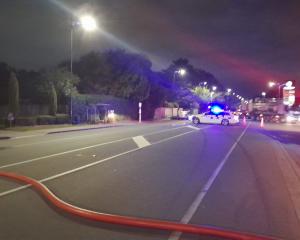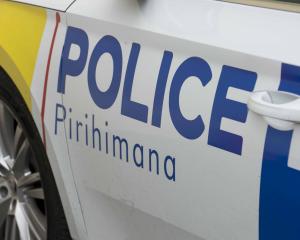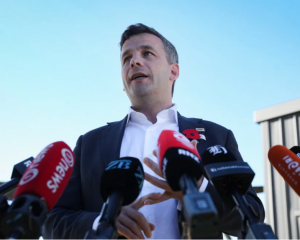Kiwis wanting to fight against the Islamic State would be targeted alongside terrorists under the anti-terror bill.
Chris Finlayson, the minister in charge of New Zealand's spy agencies, said today the bill was aimed at stopping people getting caught in the "emerging abyss" of conflict-riddled Iraq and Syria.
Speaking on TV One's Q+A programme, Mr Finlayson said the definition of a "foreign fighter" could include mercenaries and "self-delusional" types of people who believed they should go to fight for the Islamic State (Isis).
Yet the bill was also expected to target those who went to fight for Kurdish forces and other enemies of Isis.
"We do not want any New Zealanders getting caught up in this mess in the Middle East ... whether they go off and want to fight for the Kurds or want to fight for Isil."
The Green Party has said the political foundation for the Countering Terrorist Fighters Legislation Bill was currently weak. It also said the bill's drafting was flawed, and the passage of the law "disrespects parliamentary procedure and democratic standards".
The bill would amend some existing laws on Customs, security intelligence, and passports.
It would give the Security Intelligence Service (SIS) powers to use video surveillance on the private property of terror suspects without a warrant for 24 hours.
The Greens said New Zealand "imported a vicarious threat-level" from its Five Eyes intelligence partners unsuited to New Zealand's geopolitical issues and political culture.
The party's security and intelligence spokesman Dr Kennedy Graham said today he would personally prefer New Zealanders did not go fight abroad, but the bill was flawed.
"There is not a sufficient case that the rise in [Isis] and the risk of foreign terrorist fighters from New Zealand justifies the extent of increased intrusive powers of the state, in the form of covert SIS surveillance in your bathroom and bedroom," he said.
Dr Graham said the government made "no attempt" to tidy up vague language around the definition of terrorists. He said UN Security Council Resolution 2178 already defined foreign terrorist fighters in a way New Zealand's draft anti-terror bill did not include.
Dr Graham said the Foreign Affairs Defence and Trade select committee would meet again to discuss the bill this week. He expected robust discussions to be "thrashed out in debate" but doubted the legislation would change much.
The bill was already amended after the Labour Party, the Law Society and other groups condemned issues including an initial lack of safeguards for SIS visual surveillance, and the time allowed for warrantless searches.
Mr Finlayson said Resolution 2178 made it clear what New Zealand should do to combat terrorism.
The resolution, which the Security Council passed unanimously in September, urged all States "to co-operate urgently on preventing the international flow of terrorist fighters to and from conflict zones".
The resolution urged countries to prevent the recruitment, organisation and transportation of people who wanted to travel abroad to perpetrate, plan or take part in terrorist acts. The resolution made specific mention of Isis and the Al-Nusra Front, an Al-Qaeda affiliate.
NZME. jw mb











